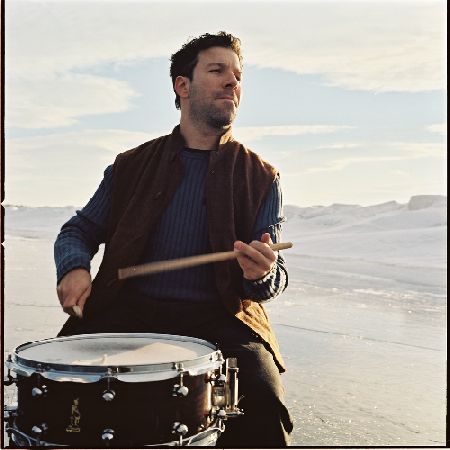Ryan Evans
Out of all the faculty members working within the Myers Fine Arts building, few have been blocked off musically in the way that professor Gabe Jarrett has. Jarrett, a jazz drummer and an adjunct faculty member, primarily gives drum lessons to students, speaks about how his lifestyle and perspective have changed due to COVID-19.
“I’ve managed to have work every semester,” Jarrett said. “But sometimes it’s two full days and sometimes it’s hardly anything.”
The inconsistencies that come with being an adjunct professor make working each year a gamble. Jarrett is also a drum instructor at the University of Vermont, St. Michael’s College, and Northern Vermont University.
“These jobs come and go depending on if there are drum students on campus,” Jarrett said. “It was working great until the pandemic,” he said, “but a lot of things have changed.”
At the start of the pandemic, Jarrett had to shift all of the lessons he had been teaching to Zoom. He said it works, but not as well. The latency that comes with broadcasting audio and video is not significant for speaking, but is problematic for musical precision.
“You can’t really play together with somebody,” Jarrett said. “They’re not going to hear sound at the same moment you’re playing, which takes a lot out of how you teach music.”
“Teaching is about half of what I do and performing on the drums is the other half,” Jarrett said.
Due to Covid restrictions he hasn’t really performed in about a year. The problem with his instrument is that it is used primarily in groups.
“It’s not like I could start giving Facebook concerts like some other people did,” Jarrett said, “That’s not really how the drums work.”
The pace of activity in Jarrett’s life before COVID was fast. The life of teaching and gigging are different from one another.
“The gigs may have kept me out till 1 or 2 a.m.,” Jarrett said. “Then I would need to teach the next morning. It could be hectic.”
For the past year, Jarrett has been a respite from that hectic lifestyle.
“There has been a space in my life that has not been there for about 20 years,” he said. With all of this extra time, Jarrett has spent his time practicing the drums and exercising. He has been reading more and watching a lot more movies which normally he would not have the time for.
“For a few months it was nice,” Jarrett said, “but I’m ready to see people again.”
“I used to love seeing the world happen in front of me,” Jarrett said. “Even if I wasn’t a part of it.” The lack of socializing due to COVID regulations is disappointing, but necessary to keep people safe. This whole experience has transformed Jarrett’s perspective on life and has helped him better respond to problems.
“I think I’m gonna worry less about things in the future,” Jarrett said. “Doing what I do there are not a lot of things that are guaranteed. Like I might have a semester where I do really well financially and have gigs and everything’s cool, then all of the sudden I’ll have a more difficult one.”
The anxiety of what is to come has been lowered significantly because COVID was one of the worst things that could have happened to him. For Jarrett, COVID taught him that despite all of the worrying he could do, the problems of life will eventually figure themselves out.



